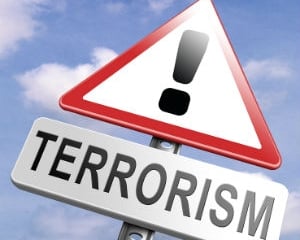Upsurge in Global Terrorism Is a Red Flag for Hospitality Industry
It is readily apparent that terrorist and active shooter events around the world have experienced s dramatic increase of late. Up until recently, 9/11 was looked upon as a one-time event and billions were subsequently spent to combat terrorism in the US. But the rise of ISIS, lone wolves and active shooters has not been deterred. In fact, it has gotten worse.
The highly publicized attacks in Paris are another example, similar to 9/11, of what happens when a major terrorist event is widely covered by news media outlets. Even after the Boston Marathon bombing, the consequences and costs were staggering. And even more recently are the tragic events in Jakarta and Burkina Faso to consider.
Aside from the ultimate cost – the loss of human life – the economic fallout has become a major concern. Complete shutdowns of communities on alert, loss of work days, shopping trips, shut down of public transportation, massive hotel and flight cancellations are what the terrorists want. Terrorists hope to instill fear and change our way of life, and to some degree they have already succeeded.
Hospitality in particular must take extra steps to be better prepared. This requires an investment in time and money. ‘Soft Targets’ is the phrase used to denote any hotel or place where people gather, and all are vulnerable. The Taj Hotel attack in Mumbai is an example of the ease in which terrorists can seize a luxury hotel. From the current list of malls, hotels, casinos and resorts, we should now add movie theaters, stadiums, rented halls and conventions.
In Israel, there has been a direct correlation between periods where highly publicized terrorism attacks have happened and decreases in tourism. The Israeli attitude towards terrorism is that it is a condition that has to be lived with and cannot be completely wiped out. The level of security in Israel has created somewhat of a ‘security culture’. The Israeli public understands what terrorism is and society thrives amidst daily threats. The public is a partner with local authorities and, as the eyes and ears on the ground, this alliance has proven quite successful.
In the US and Europe, the public is still not completely comfortable with visible security measures such as gun-toting guards or having to deal with the inconveniences that accompany increased security such as car searches, guards at public entranceways and passing through metal detectors. The Israeli public has learned that these inconveniences are implemented in order to protect them, and rarely are there complaints about making these minor sacrifices. In addition, tourists visiting Israel quickly learn that these measures are a way of life.
Israeli hotels are given special attention and special government regulations have been instituted. Compliance is mandatory and has resulted in a safer environment for the thriving tourism industry. Hotels are required to have armed guards at entranceways while special building materials must be used such as shatter-proof or bomb-proof glass. Access points require approval. Each hotel must have a security official who is trained to deal with terrorist events in addition to other duties such as theft.
So, how are other nations’ hospitality industries going to adapt to these new conditions? How will operators upgrade security plans to be better prepared? Doing little can be extremely costly. Concern about the financial investment or finding the time to train staff can prove to be a mistake in the long run.
It may behoove management to consider using professional security consultants to develop emergency contingency plans. Having a well-organized emergency contingency plan can improve preparedness, response and recovery including:
- Security and threat assessments or upgrades of existing assessments
- Evaluation of physical security measures, surveillance, alarm and communication systems
- Public safety response protocols, evacuation and lock down plans and drills
- Crisis communications/public relations and media/spokesperson training to minimize negative public reaction to increased security and the aftermath of an actual incident
(Article by Jim Braver, originally published in eHotelier on January 22, 2016)
About the Author
James Braver is a former member of Cayuga Hospitality Consultants.
Contact Us




